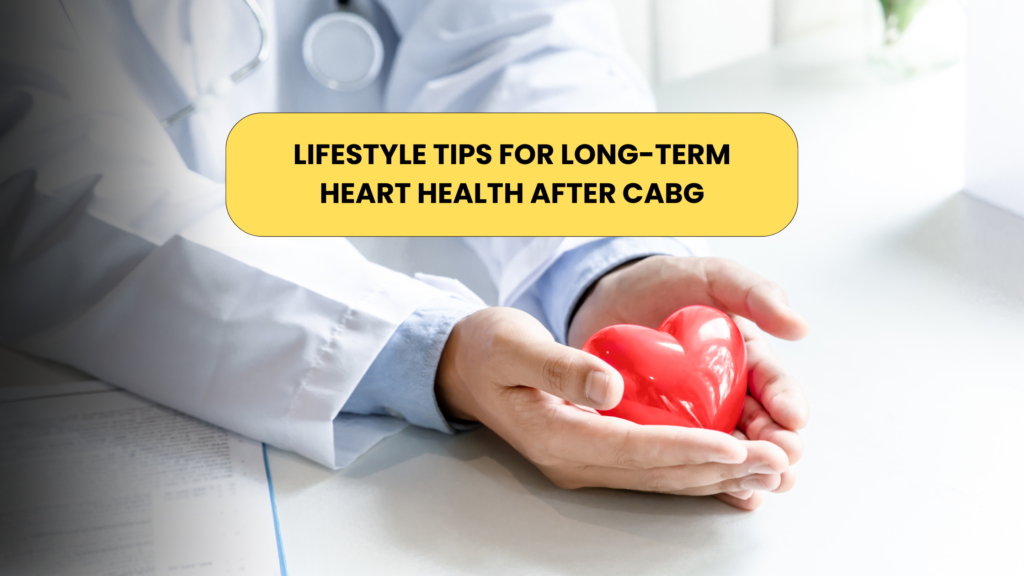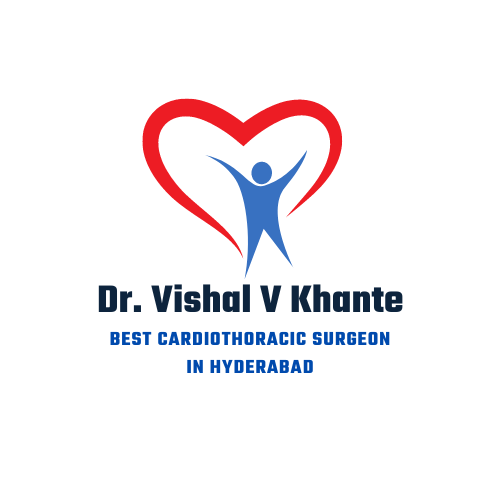After undergoing Coronary Artery Bypass Grafting (CABG), also known as heart bypass surgery, making significant lifestyle changes is crucial to ensure your heart remains healthy and strong for the long term. CABG is often a transformative procedure that improves blood flow to the heart by bypassing blocked arteries. To maintain these benefits and reduce the risk of future heart problems, adopting a heart-healthy lifestyle is essential. Here’s a guide to the lifestyle changes that can contribute to your long-term heart health post-CABG:
Healthy Eating Habits
A heart-healthy diet is fundamental for managing cardiovascular health.
- Focus on Balanced Diet: Include a variety of fruits, vegetables, whole grains, lean proteins (like fish and poultry), and healthy fats (like olive oil and avocados).
- Limit Saturated and Trans Fats: Reduce consumption of red meat, butter, full-fat dairy products, and processed foods.
- Watch Sodium Intake: Limit salt and sodium-rich foods to help manage blood pressure.

Regular Physical Activity
Exercise is vital for strengthening the heart and improving overall cardiovascular fitness. Aim for:
- Cardiovascular Exercise: Engage in activities like brisk walking, cycling, swimming, or dancing for at least 30 minutes most days of the week.
- Strength Training: Incorporate resistance exercises using weights or resistance bands to build muscle and support overall heart health.
- Consult Your Doctor: Discuss a suitable exercise plan tailored to your recovery and health status.
Smoking Cessation
Smoking significantly increases the risk of heart disease and complications post-CABG. Quitting smoking is one of the most beneficial actions you can take for your heart health:
- Seek Support: Consider counseling, nicotine replacement therapy, or medications to assist with quitting.
- Avoid Secondhand Smoke: Stay away from environments where smoking is allowed.
Weight Management
Maintaining a healthy weight reduces strain on your heart and lowers the risk of diabetes and other conditions. Tips for managing weight include:
- Portion Control: Be mindful of serving sizes and avoid overeating.
- Nutritional Awareness: Keep track of calorie intake and make informed food choices.
- Stay Active: Combine healthy eating with regular exercise to achieve and maintain a healthy weight.
Stress Management
Chronic stress can contribute to heart disease. Techniques to manage stress include:
- Relaxation Techniques: Practice deep breathing, meditation, or yoga to promote relaxation.
- Time Management: Prioritize tasks and delegate when possible to reduce feelings of overwhelm.
- Hobbies and Social Support: Engage in activities you enjoy and maintain connections with supportive friends and family members.

Regular Medical Check-Ups
Ongoing medical care is essential to monitor your heart health and address any concerns promptly. Attend regular follow-up appointments with your healthcare provider to:
- Monitor Medications: Ensure you are taking medications as prescribed and discuss any side effects.
- Assess Cardiovascular Health: Check blood pressure, cholesterol levels, and overall heart function regularly.
- Review Lifestyle Changes: Discuss progress with dietary changes, exercise routines, and smoking cessation efforts.
Conclusion:
Making lifestyle changes post-CABG can significantly improve your long-term heart health outcomes. By adopting a heart-healthy diet, staying physically active, quitting smoking, managing stress effectively, maintaining a healthy weight, and attending regular medical check-ups, you empower yourself to live a fulfilling life with a strong and resilient heart.
Remember, every positive change you make contributes to your overall well-being and enhances the benefits of your CABG surgery. Embrace these lifestyle changes with determination and commitment to enjoy a healthier heart for years to come.
